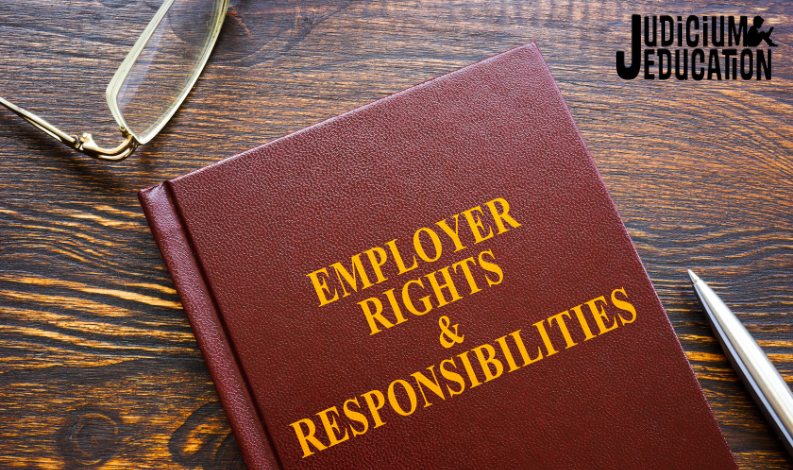(11)_1000.png)
Medical Data and Exam Appeals
We have received a lot of requests about what medical data schools can record when returning back to work. Below we have provided our own guidance on this subject.
Can an employer ask staff about medical status when it relates to Coronavirus?
Yes. There must be lawful grounds and valid reasons to process special category personal data. This is important because medical information is classed as special category data. Whilst consent can be a lawful ground for processing such data, your school can rely upon three other lawful grounds for processing:
- For reasons of substantial public interest;
- Collecting/using this data is necessary for preventative/occupational medicine or to assess the working capacity of the employee; and
- Collecting/using this data is necessary for reasons for public interest in the area of public health.
What information can be requested?
Your school must comply with the principle of data minimisation, thus only asking for the minimum information necessary required to enable you to carry out your legal responsibilities. This means that you will only need to know what underlying health conditions your pupils/employees may have in order to fulfil the school’s responsibilities. This may also be applicable to anyone that they may live with who are shielding or are deemed vulnerable by the Government guidance. You cannot request to see their full medical records unless the lawful grounds justify this.
If one of your staff members or pupils has a letter from the Government saying that they are considered vulnerable, or a member of their household is, then they should be asked to share this information with you in order for you to plan appropriately.
How do we keep the data safe and secure and can we share this data with others?
Just as with other sensitive data, any medical information supplied by your staff should be kept extremely secure with strict access controls; or if you intend to store the information electronically there should be strict user access privileges to only a few and ideally requiring two factor authentication too.
In case of medical emergencies data can be shared (vital interest), without the consent of the subject, or as part of NHS track and trace. Otherwise, the consent of the subject must be had to share the data or ensure that you share minimal data to what is necessary. For example, if you have a staff member self-isolating, you may need to inform other staff/parents/pupils about this development but there isn’t a requirement to share their name, symptoms or medical history.
All data that you have on record must be kept up to date, accurate, your school should have specific retention periods in place for this information and you should be transparent in how you process this data. Your school can raise awareness of how this new data will be processed by adding the following as an addendum to your privacy notices (this can be added to the end of your current privacy notices or displayed as a separate notice).
Privacy Notice Addendum Re: Collecting Medical Data during the pandemic
1.1 The law on protecting personally identifiable information, known as the General Data Protection Regulation (GDPR), allows [Your School] to use the personal information collected from staff/parents/carers and pupils. This includes special category data such as medical data.
1.2 Due to this pandemic, we may need to ask for data that you have not previously supplied. This data will be collected for, and on behalf of [Your School] to allow appropriate decisions to be made regarding assessing ability to return to school and ensure that appropriate measures are put in place to allow for this safe return.
1.3 [Your school], additionally may need to collect data about individuals that they reside with in order to factor in appropriate considerations for their wellbeing.
1.4 All data collected by [Your School] will be processed in accordance with our retention, destruction, data protection and data security policies. For further information these can be found [on the School’s/Academy’s/Trust’s website or by requesting this information from reception].
1.5 The legal bases for using your data in these circumstances will be either (a) with your consent, (b) where it is necessary to process this data for the ‘vital interests’ of yourself or another person, (c) for the reasons of substantial public interest, (d) where it is necessary to assess the working capacity of an employee or (e) where is it in the interests of public health.
1.6 In the current pandemic, we may need to share select data with others. This can be with the NHS and emergency services, public authorities as well as other stakeholders. This will only be done where it is necessary and proportionate for us to do so.
Exam Result Appeals and Subject Access Requests
There is updated government guidance on predicted grading and appeals in England. Ofqual say that they have given serious consideration as to whether a pupil could appeal against their school or college’s centre assessment grades and position in the rank order. Ofqual has decided it would not be in the interests of pupils, or the fairness of the arrangements overall, for a number of reasons:
- The appeal would have to be undertaken by someone better placed than the pupil’s teachers to judge the grade they would likely have received if the exams had taken place – in the unique circumstances of this summer they do not believe there is any such person.
- An appeal would also require pupils to have access to the information their school or college put forward before being submitted to exam boards. This may compromise the reliability of this year’s approach.
- Furthermore, if one pupil successfully appealed against their position in the rank order, it would have negative implications for other pupils who would, in turn, need to be given an opportunity to appeal.
The guidance states that appeals are strictly limited to the following scenarios: -
- Where a centre believes it has made an error when submitting its information;
- If the centre believes an exam board made a mistake when calculating, assigning or communicating a grade; or if
- A pupil has evidence of bias or discrimination.
- It is important schools and colleges do not share provisional grades, nor rank orders, with pupils, parents or carers. This is in order to protect the integrity of the process through which teachers’ judgements are arrived at, and to avoid staff feeling under pressure to submit a grade that is not supported by the evidence.
- Any inappropriate disclosure of centre assessment grades and rank order information will be investigated by exam boards as potential malpractice.
- In the event your school receives requests for data used to award grades prior to the announcement of results, then contact Judicium directly and we can assist you with responding to requesters directly.
- Once centre assessment grades have been submitted to exam boards, the process to produce the final grades will start. More information will be given to teachers, pupils, parents and carers at the time final results are issued.
Finally, it is imperative that you retain supporting evidence used to assess grading in case it is either requested or required for further examination
Related content
.png)
This blog is based on Judicium’s SEND ‘Sofa Session’ from the 20th of November, with our resident expert Rik Chilvers.
.png)
This summary is based on Judicium’s Employment Law ‘Sofa Session’ from the 13th of November, with our resident experts Jenny Salero, Kelly Rayner and Suzanne Ravenhall

This blog is based on Judicium’s Health and Safety ‘Sofa Session’ from the 6th of November, with our resident expert Isthar Pearce.

Effective from 26 October 2024, schools, Multi-Academy Trusts (MATs), and all employers in the UK will be legally required to take proactive steps to prevent sexual harassment in the workplace.
.png)
This blog is based on Judicium’s Health and Safety ‘Sofa Session’ from the 23rd of October, with our resident expert Andy Camroux.

This blog is based on Judicium’s Health and Safety ‘Sofa Session’ from the 16th of October, with our resident expert Rachel Kitchen.


Sofa Sessions | SEND